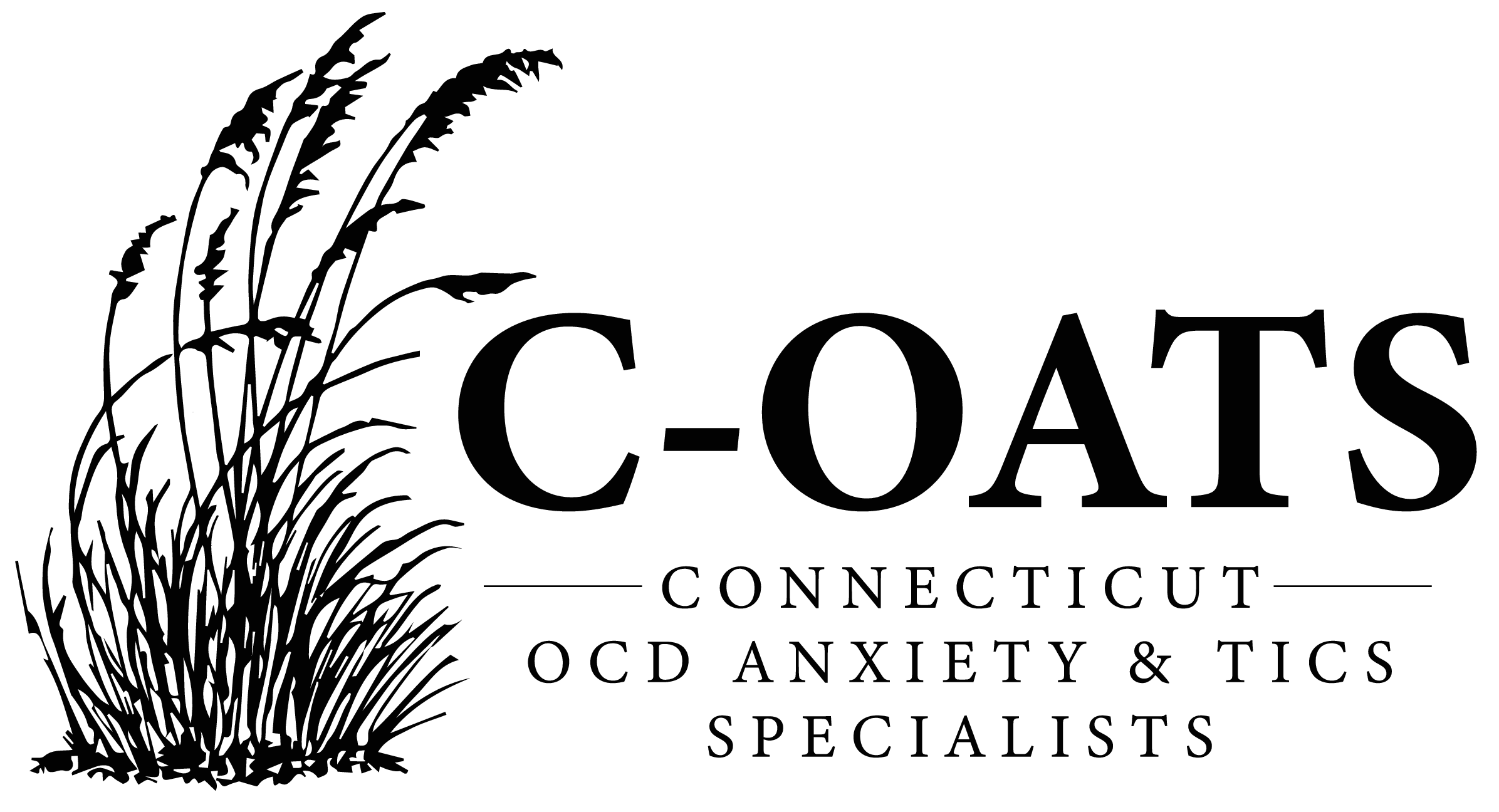Co-Occurring Disorders
Leading Co-Occurring Disorders Specialist in Greenwich, CT
As a leading specialist in Co-Occurring Disorders treatment in Greenwich, CT, we are dedicated to providing comprehensive and personalized care for children with multiple conditions occurring concurrently. In this article, we will explore the nature of co-occurring disorders, the challenges they present, effective treatment options, and how C-OATS can support your child’s well-being.
Understanding Co-Occurring Disorders
Co-occurring disorders refer to the simultaneous presence of two or more mental health, developmental, and/or medical conditions in an individual. At C-OATS, we recognize the unique complexities that arise when multiple conditions intersect and impact a child’s well-being. Our specialized expertise enables us to address the interplay of these conditions and develop targeted treatment plans to promote optimal outcomes.
Types of Co-Occurring Disorders
Co-occurring disorders can encompass a wide range of combinations, such as Tics and ADHD, ADHD and anxiety, and Autism Spectrum and intellectual disabilities. Each combination presents its own set of challenges, and our team of specialists at C-OATS has the expertise to identify and address the specific needs of children with co-occurring disorders.

Brief Trans-Diagnostic Parent Training (BTPT)
Effective Treatment Options for Co-Occurring Disorders
The field of psychology and psychiatry typically know how to treat a condition when it happens in isolation with CBT, meds, or a combination of the two. While little research has been conducted and many unknowns remain, Dr. Specht has been a thought-leader and at the forefront of this issue and how to effectively treat patients presenting with several conditions.
Treating comorbidity requires that your doctor is highly trained, very skilled and has a lot of clinical experience successfully treating multiple conditions at once. Unlike less experienced clinicians who rely on standard treatment manuals and get caught up in symptom reduction, Dr. Specht focuses on the most impairing conditions with a goal of functional improvement. He prides himself on developing innovative approaches to effectively treat the child holistically, collaborating with parents, schools, other doctors and therapists to properly assess and create an appropriate treatment plan.
For example, Dr. Specht developed Brief Trans-Diagnostic Parent Training (BTPT) as a strengths-based, parent-centered approach to re-orchestrating the child’s environment to put a constant positive pressure on the environment to “pull” a child toward improved functioning and symptom reduction. BTPT serves as planned, strategic, and pragmatic approach to work from the macro to micro level variables and simplifies case management. BTPT is often added to individual symptom-specific CBT and/or medication, and has proven to be a powerful and highly effective combination.
BTPT was presented at the American Academy of Child and Adolescent Psychiatry (AACAP, Oct 2019) for the treatment of children, adolescents, young adults with complicated comorbid presentations.
Causes and Impact of Co-Occurring Disorders
The causes of co-occurring disorders are multifaceted and may include genetic predisposition, environmental factors, and neurobiological processes. Children with co-occurring disorders often experience greater impairments and complexities compared to those with a single disorder, and are at risk for poorer outcomes.
The interaction between multiple conditions can exacerbate symptoms and impact various areas of a child’s life, including academic performance, social interactions, and emotional well-being.
Our Approach to Co-Occurring Disorders Treatment
At C-OATS, our approach to treating co-occurring disorders is rooted in evidence-based practices and a holistic understanding of each child’s unique needs. We combine therapeutic interventions, medication management (when necessary), and collaboration with other professionals and schools to develop a comprehensive treatment plan that addresses all aspects of your child’s well-being.
Why Choose C-OATS for Co-Occurring Disorders Treatment
Choosing the right specialist for your child’s co-occurring disorders treatment is crucial. Here’s why you can trust C-OATS:
- Specialized Expertise: As a leading Co-Occurring Disorders specialist in Greenwich, CT, we have extensive experience in diagnosing and treating complex presentations of multiple conditions. Our team stays abreast of the latest research and employs innovative approaches to ensure the best outcomes for your child.
- Individualized Treatment Approach: We understand that each child is unique, and we tailor our treatment approach to address their specific combination of conditions, strengths, and challenges. Our interventions are personalized to promote positive outcomes and enhance overall well-being.
- Collaborative Care: We believe in the power of collaboration. We work closely with parents, caregivers, schools, and other healthcare providers involved in your child’s care to develop a comprehensive treatment plan and provide ongoing support.
Tips for Helping Your Child with Co-Occurring Disorders
Supporting a child with co-occurring disorders can be challenging, but your support can make a significant difference. Here are some tips to assist your child:
- Educate Yourself: Learn about each of your child’s conditions to gain a better understanding of their unique needs and challenges. By becoming knowledgeable about their specific conditions, you can provide informed support and advocate for their needs effectively.
- Foster a Supportive Environment: Create an environment that fosters acceptance, understanding, and open communication. Encourage your child to express their feelings and provide them with a safe space to do so. Be patient and non-judgmental, allowing them to share their experiences and concerns without fear of criticism.
- Collaborate with Professionals: Work closely with your child’s healthcare providers, therapists, and educators to ensure a coordinated approach to their treatment and support. Share important information about their conditions, treatment plans, and any progress or challenges they may be facing. Collaborative efforts between professionals and caregivers can enhance the effectiveness of interventions and facilitate consistent support for your child.
- Establish Routines and Structure: Children with co-occurring disorders often benefit from routines and structured environments. Create a daily schedule that includes consistent mealtimes, sleep routines, and designated times for homework or leisure activities. Clearly communicate expectations and provide visual cues or reminders to help them stay organized and focused.
- Encourage Healthy Coping Strategies: Teach your child healthy coping strategies to manage stress and regulate their emotions. Encourage activities that promote relaxation, such as deep breathing exercises, mindfulness techniques, or engaging in hobbies they enjoy. Help them identify and express their emotions in a healthy way, such as through journaling, drawing, or talking with a trusted adult.
- Foster Social Connections: Support your child in developing and maintaining positive social connections. Encourage participation in activities or clubs where they can interact with peers who share similar interests. Help them develop social skills by practicing communication, empathy, and problem-solving in different social situations.
- Celebrate Progress and Small Achievements: Acknowledge and celebrate your child’s efforts and achievements, no matter how small they may seem. Recognize their strengths and encourage a growth mindset. Positive reinforcement and encouragement can boost their self-esteem and motivation to overcome challenges.
- Take Care of Yourself: Caring for a child with co-occurring disorders can be demanding, both emotionally and physically. Remember to prioritize self-care and seek support when needed. Take time to engage in activities that recharge you and maintain a support network of friends, family, or support groups who can offer understanding and guidance.
By implementing these strategies and providing consistent support, you can help your child navigate the challenges of co-occurring disorders and foster their overall well-being and development.
FAQs
What are co-occurring disorders?
Co-occurring disorders refer to the presence of two or more mental health conditions occurring simultaneously in an individual. These conditions may include anxiety disorders, mood disorders, substance use disorders, or other mental health conditions.
How common are co-occurring disorders?
Co-occurring disorders are relatively common, with research suggesting that a significant number of individuals with mental health conditions experience more than one disorder simultaneously. The presence of co-occurring disorders can complicate diagnosis and treatment.
What are the challenges of treating co-occurring disorders?
Treating co-occurring disorders can be complex due to the interplay between multiple conditions. Challenges may include determining the primary diagnosis, identifying appropriate treatment strategies, and addressing the interactions between different disorders and their symptoms.
What treatment options are available for co-occurring disorders?
Effective treatment for co-occurring disorders often involves an integrated approach that combines therapy, medication management, and support services. The specific treatment plan may vary depending on the individual’s unique needs and the nature of the co-occurring disorders.
Does C-OATS specialize in treating co-occurring disorders?
Yes, C-OATS specializes in treating co-occurring disorders in children and adolescents. Their team of experienced professionals is skilled in addressing the complexities of multiple conditions and developing individualized treatment plans to support positive outcomes.
What is C-OATS' approach to treating co-occurring disorders?
C-OATS takes a comprehensive approach to treating co-occurring disorders, focusing on functional improvement and holistic care. Their treatment approach may include evidence-based therapies, such as Cognitive Behavioral Therapy (CBT), medication management when appropriate, and collaborating with parents, schools, and other healthcare providers.
Can co-occurring disorders be effectively managed?
Yes, with proper diagnosis, treatment, and ongoing support, co-occurring disorders can be effectively managed. Treatment aims to reduce symptoms, improve functioning, and enhance overall well-being, empowering individuals to lead fulfilling lives.
Are there support groups or resources available for families dealing with co-occurring disorders?
Yes, there are support groups, online communities, and resources available for families dealing with co-occurring disorders. These can provide valuable information, guidance, and opportunities for connection with others facing similar challenges.
Q&A With Emily Carr, Practice Manager
This month, get to know Emily Carr, the engine behind our office. As our Practice Manager, she handles our operations and ensures that our families feel well supported. Enjoy getting to know Emily! How does your medical/clinical background uniquely position you to...
C-OATS Spotlight on Dr. Catherine McNulty, Ph.D.
In celebration of Women’s History Month, an annual celebration of women’s contributions to history, culture and society, we’re putting Dr. Catherine McNulty, at center stage. Dr. McNulty joined the C-OATS team over a year ago and has quickly connected with...
A Parent’s Guide to Child Anxiety Treatment
While occasional anxiety is a common and an expected part of life, anxiety disorders go far beyond temporary worry or fear. The symptoms of anxiety can be crippling and interfere with daily functioning and activities, thus impacting a child’s well-being, development,...
Talk With Us
WE LOOK FORWARD TO HEARING FROM YOU. A MEMBER OF THE C-OATS TEAM WILL RESPOND BACK WITHIN 24-48 HOURS UPON RECEIVING YOUR MESSAGE.





